Despite ongoing economic uncertainties, companies in the DACH region are showing a willingness to invest in Generative Artificial Intelligence (GenAI). This is highlighted by the 7th German Social Collaboration Study, which provides a valuable and independent overview of the use of modern technologies for networked collaboration. The digital workplace is evolving with a new technology: GenAI is transforming everyday work, driven by the rapid evolution of tools such as Microsoft 365 Copilot and ChatGPT. Employees are increasing their personal productivity, business units are developing creative solutions for various use cases, and companies are seeking competitive advantages by optimizing business-critical processes. In addition to GenAI, this year's study focuses on the areas of digital workplace, hybrid work, employee experience, and frontline workers.
Since 2016, the Technical University of Darmstadt and the international management and technology consultancy Campana & Schott have been conducting the German Social Collaboration Study. The study examines the adoption of modern technologies and the evolution of networked collaboration in companies from Germany, Austria, and Switzerland. It also considers the perspective of frontline workers who do not primarily work on computers or other digital devices, alongside other emerging trends. With the German Social Collaboration Study 2025, executives and decision-makers gain valuable insights to guide them in introducing and enhancing a digital workplace with GenAI, as well as in shaping hybrid and remote work strategies.
The results at a glance
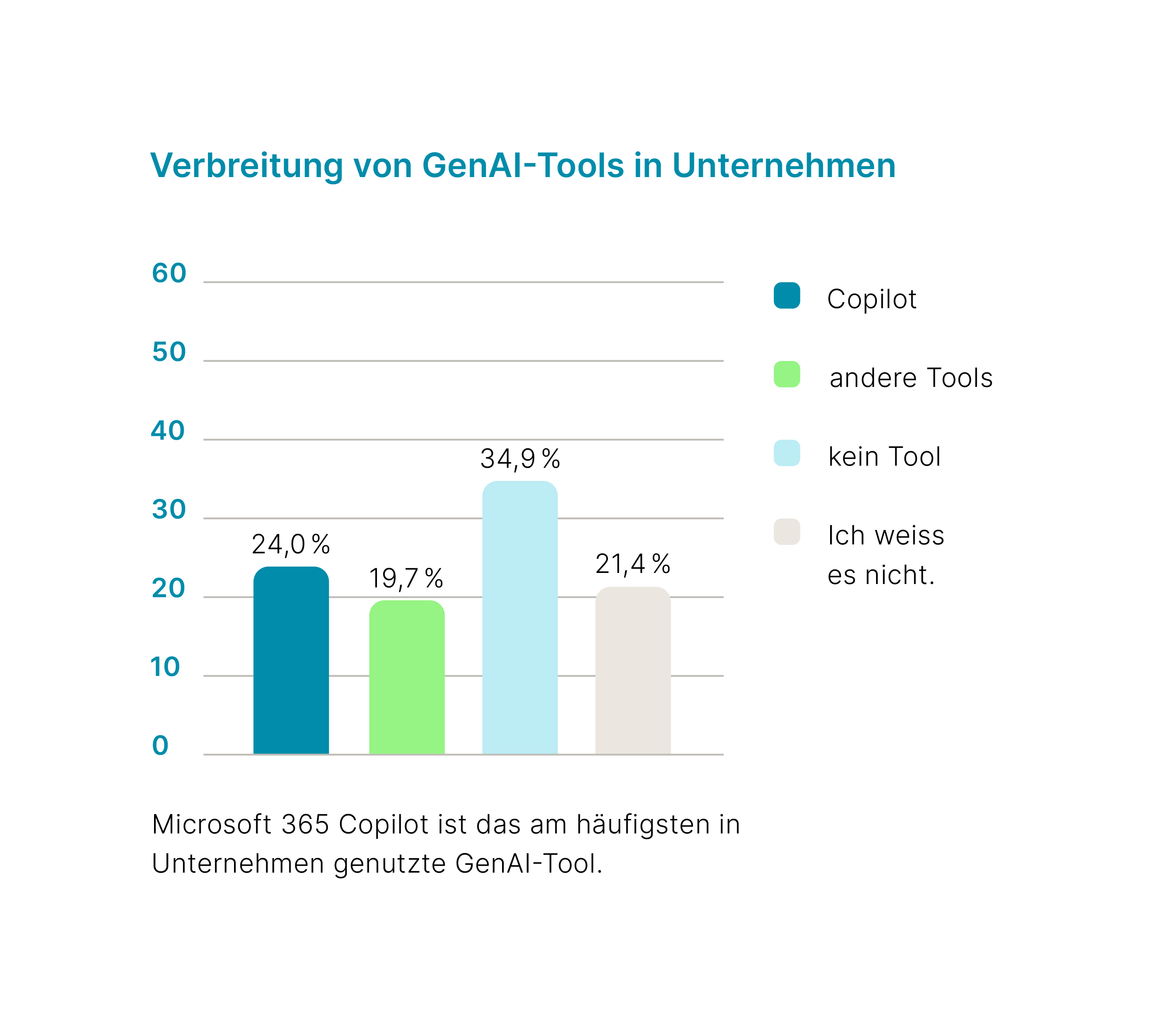
→ Nearly half of the companies are already using GenAI
According to the study, 43.7% of companies in the DACH region are already using GenAI tools, with 24.0% using Microsoft 365 Copilot, making it the most popular. The main use cases are text creation and editing (23.8%), followed by customer support (15.4%) and task automation (14.1%). Respondents who are already using GenAI identify two key success factors: effective prompting and critical evaluation of AI results. Additionally, a solid data foundation is crucial. Only 41.4% of respondents believe they can use GenAI without significant improvements in data quality. Further challenges are anticipated by 78% of respondents due to the potential impact of the EU AI Act regulations.
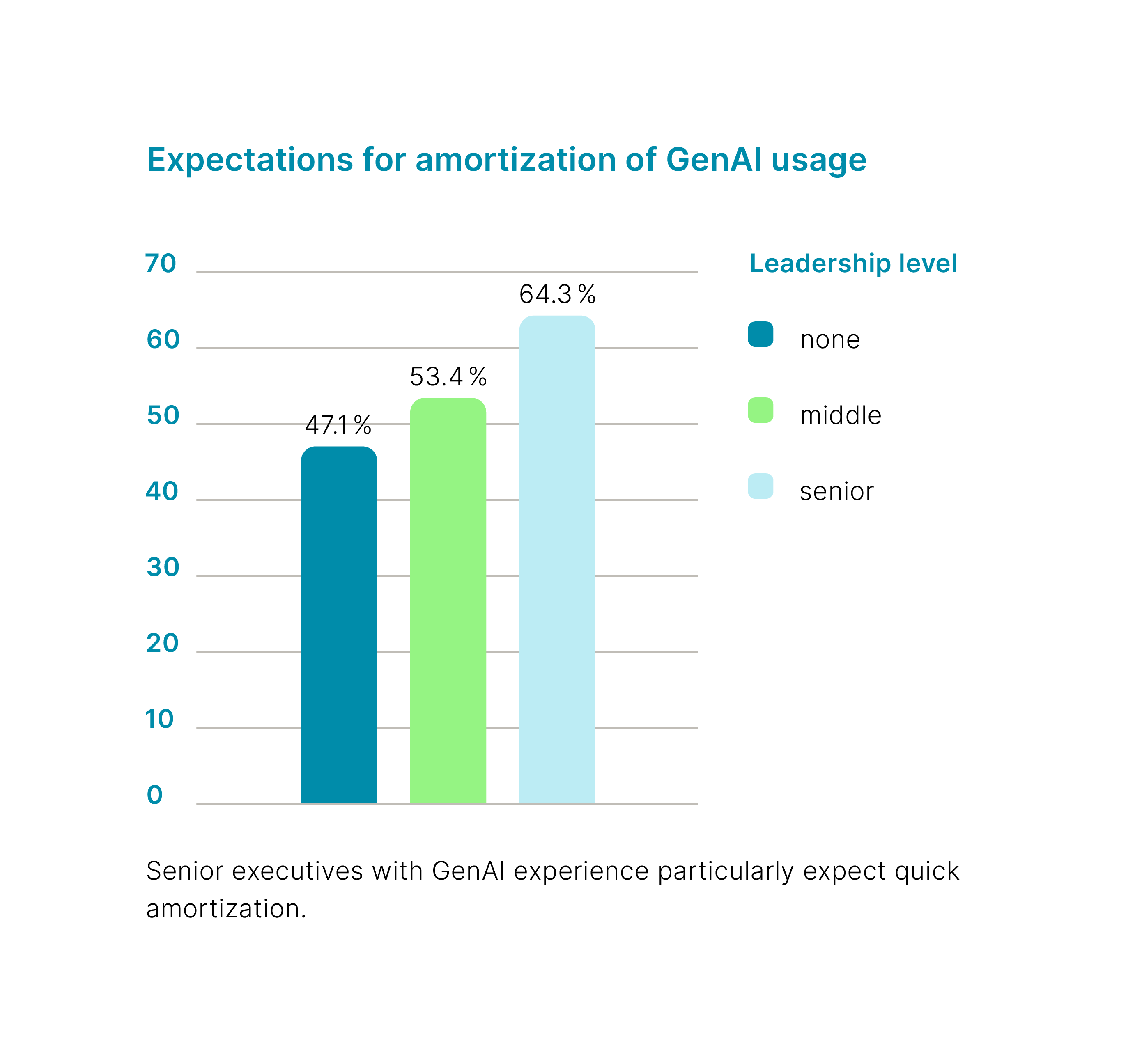
→ GenAI is definitely worth it
42.9% of all participants expect the investment in GenAI to pay off quickly. Those who are already using GenAI are particularly convinced: half of them expect a quick amortization, significantly more than non-users (37.7%). This conviction is especially strong at the senior management level. Executives generally do not see the introduction of GenAI primarily as a cost issue. More than half of all respondents (53.4%) consider GenAI relevant even without specific use cases or have already identified some. Only 8.8% consider GenAI irrelevant – a clear sign of the broad acceptance of the technology.
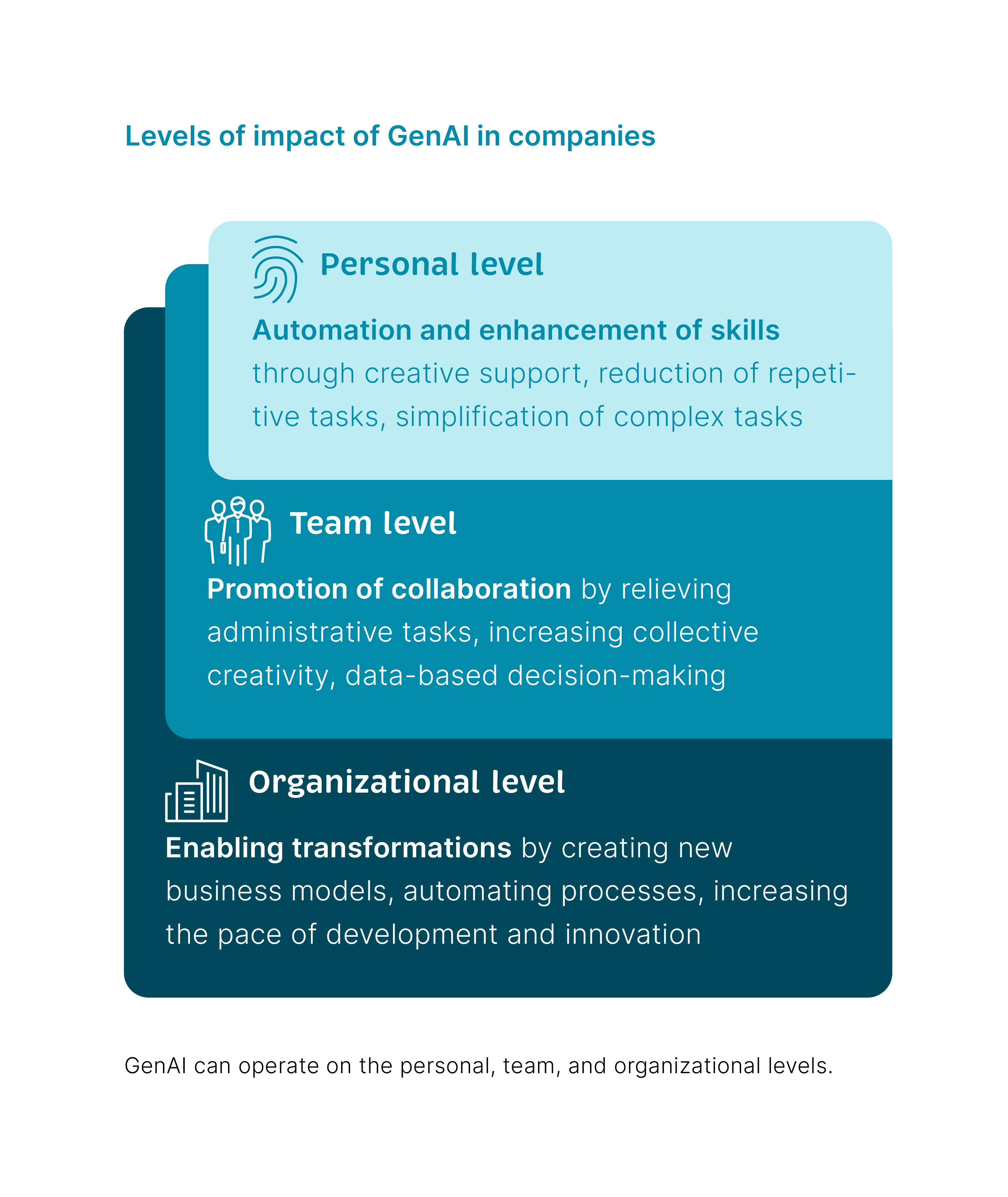
→ GenAI is most important on a personal level
GenAI is transforming the way companies work on three levels: personal, team, and organizational. Respondents particularly support implementation on a personal level, with a score of 5.2 on a scale from 1 (strongly disagree) to 7 (strongly agree). The team and organizational levels follow closely behind, each with a score of 4.8. However, in practice, only 38.8% have experienced GenAI on a personal level, 25.7% on a team level, and 24.4% on an organizational level. Therefore, it is essential to clearly communicate the benefits and applications of these technologies to employees through training and empowerment initiatives.
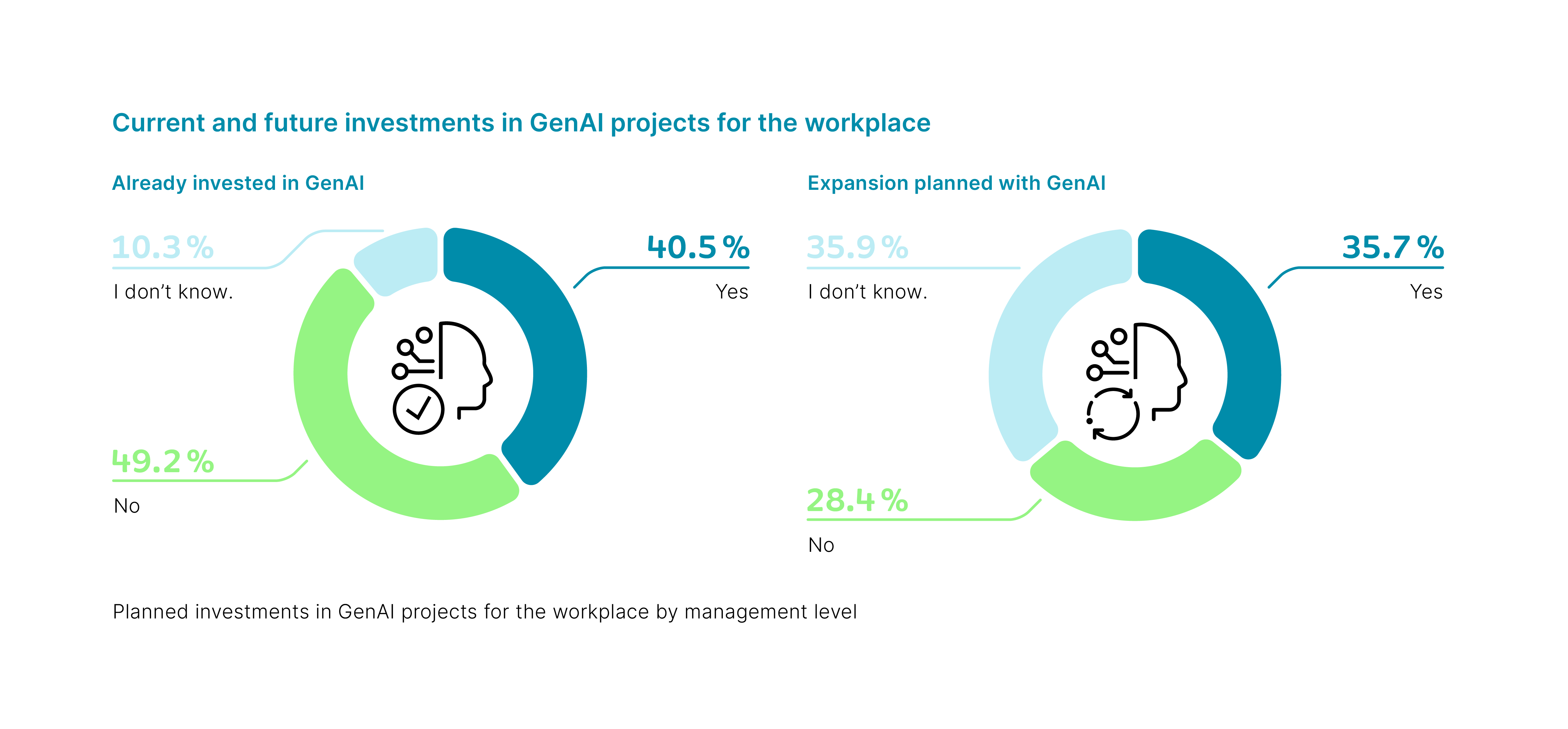
→ 41% use GenAI as part of the digital workplace
GenAI is increasingly becoming a central component of the digital workplace. In the DACH region, 40.5% of companies have already implemented GenAI projects, while another 35.7% are planning expansion. GenAI-based applications for text creation and translation (24.6%) and the automation of routine tasks (23.1%) are improving the quality of the digital workplace. However, companies must ensure that these technologies are used effectively to improve productivity and shift routine tasks toward creative activities. Given the expected impact of the EU AI Act, they should also ensure timely compliance with regulatory requirements.
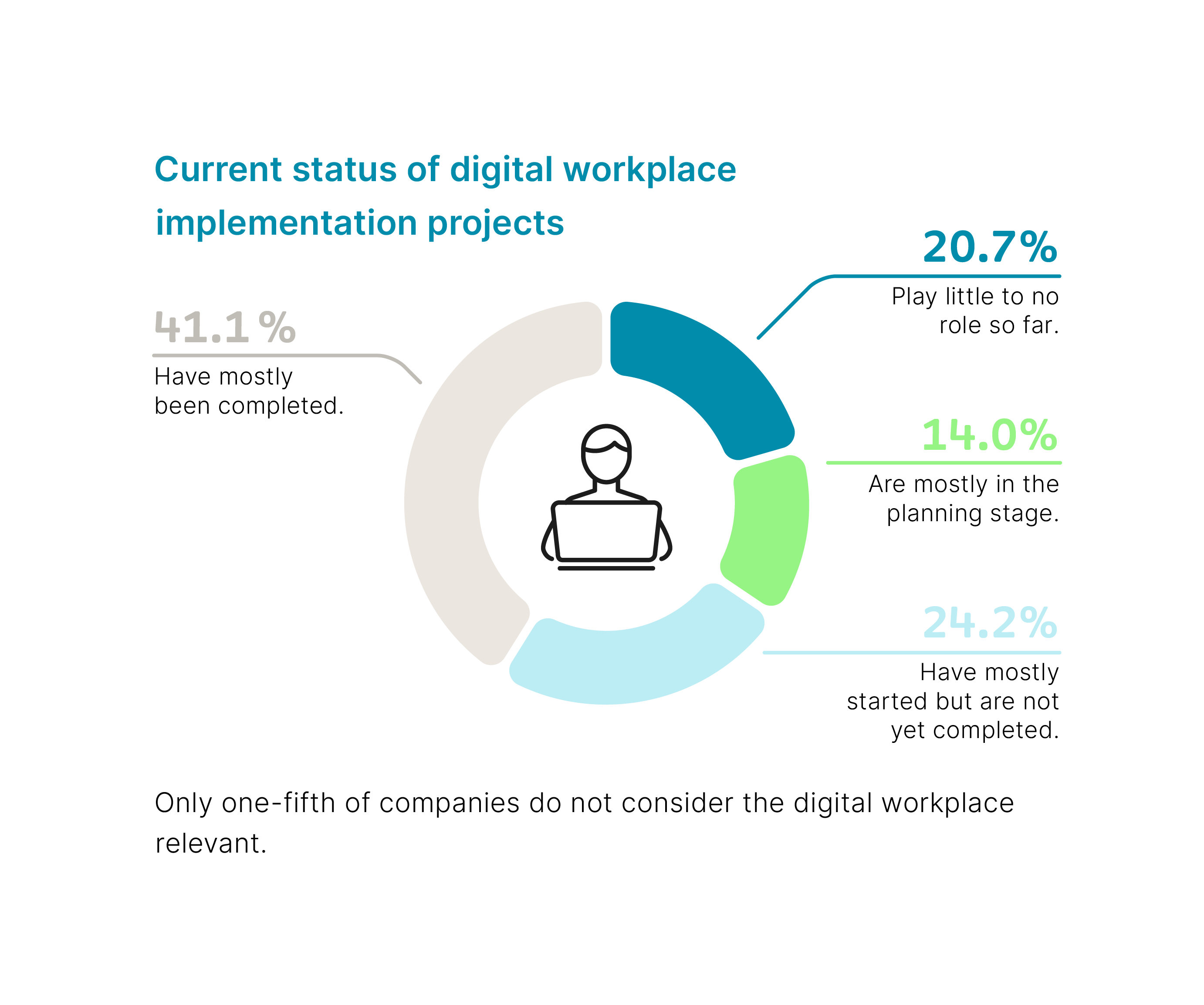
→ Two-thirds have a digital workplace
Two out of three companies in the DACH region already have a digital workplace or are in the process of implementing one. The key benefits include more efficient communication (46.8%), optimized documentation (36.8%), and improved process design (31.8%). Moreover, the digital workplace has become a deciding factor for employees to stay with or apply to a company. When choosing a job, respondents consider flexibility through remote work (42.9%) and modern, integrated technology (25.7%) as the most important features.
Why should you act now?
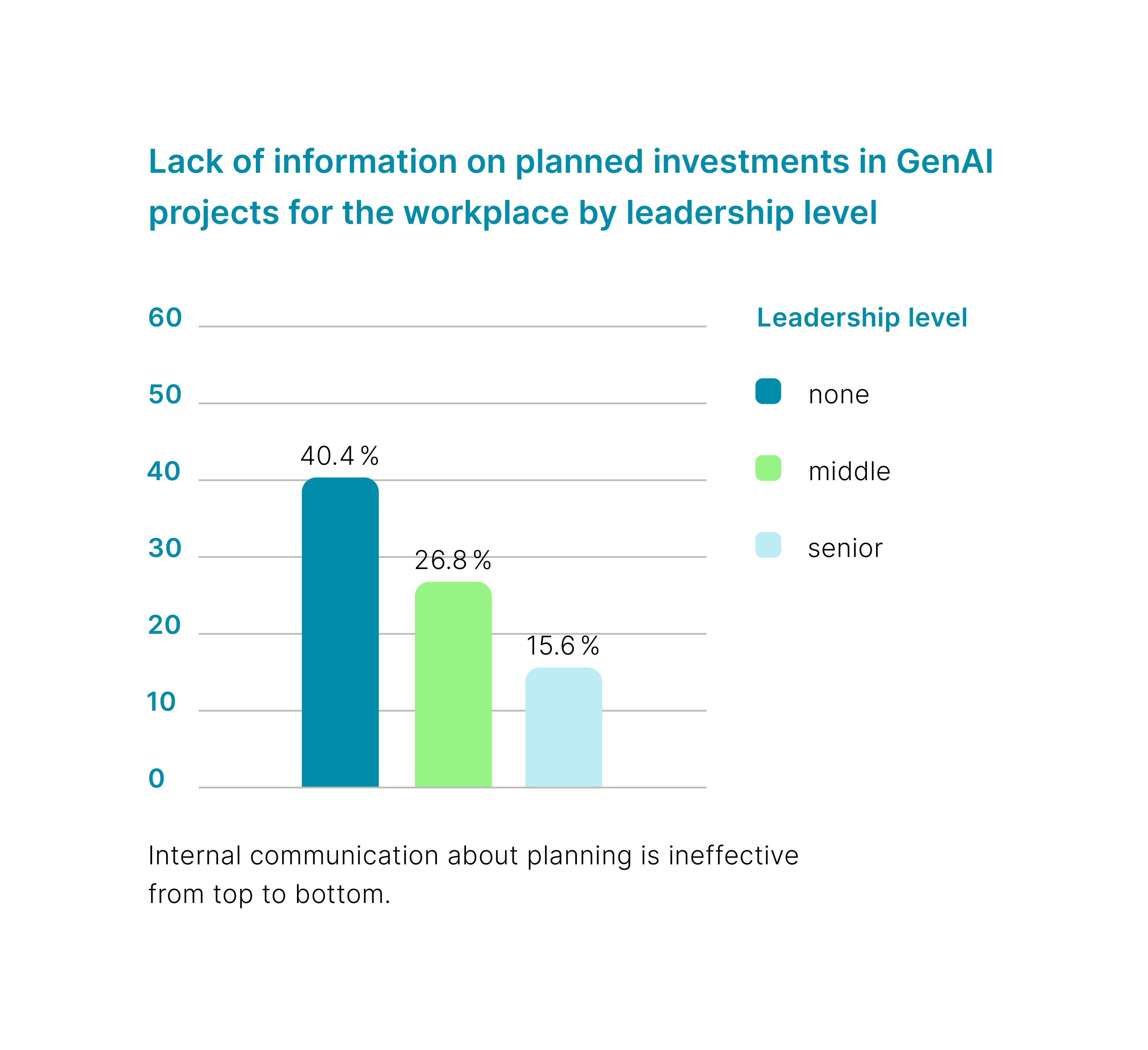
- Employees need to be informed
49.1% of employees without leadership roles and even 41.1% of middle management are unsure whether an expansion of the digital workplace is planned. The same uncertainty applies to investments in GenAI projects for the workplace. While only 15.6% of senior management are unaware of the planning status, this figure rises to 26.8% in middle management and 40.4% among employees without leadership roles. This indicates that internal communication from top to bottom is insufficient. To ensure that cross-functional solutions effectively reach users, comprehensive change management is essential.
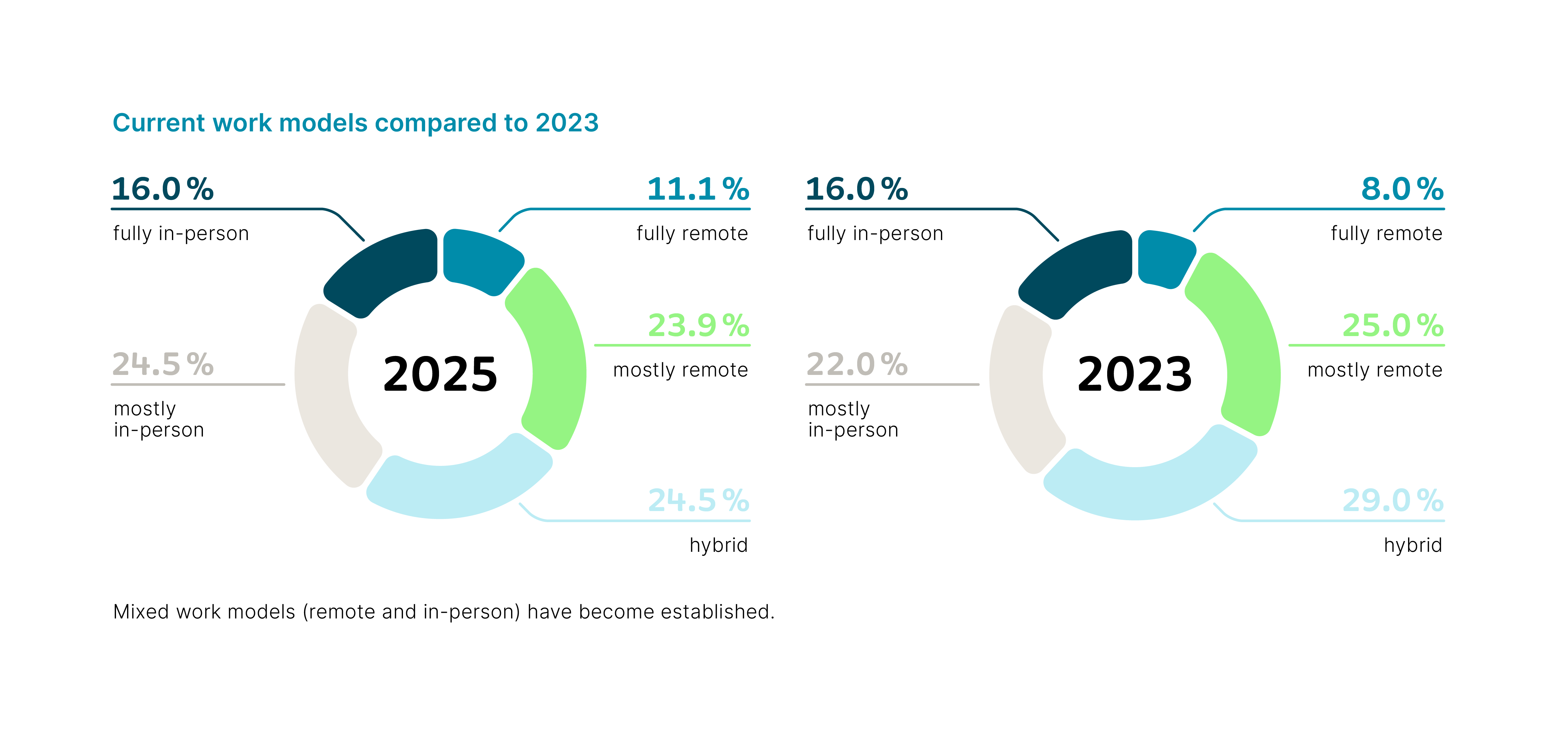
- Flexible work models on the rise
Nearly three-quarters of employees switch between office and remote work, with the proportion of fully virtual workers slightly increasing. While employees prefer in-person formats for onboarding (58.5%) and team meetings (50.1%), digital formats are favored for status meetings and brainstorming sessions. Companies need to develop solutions that accommodate individual work styles while enabling productive collaboration.
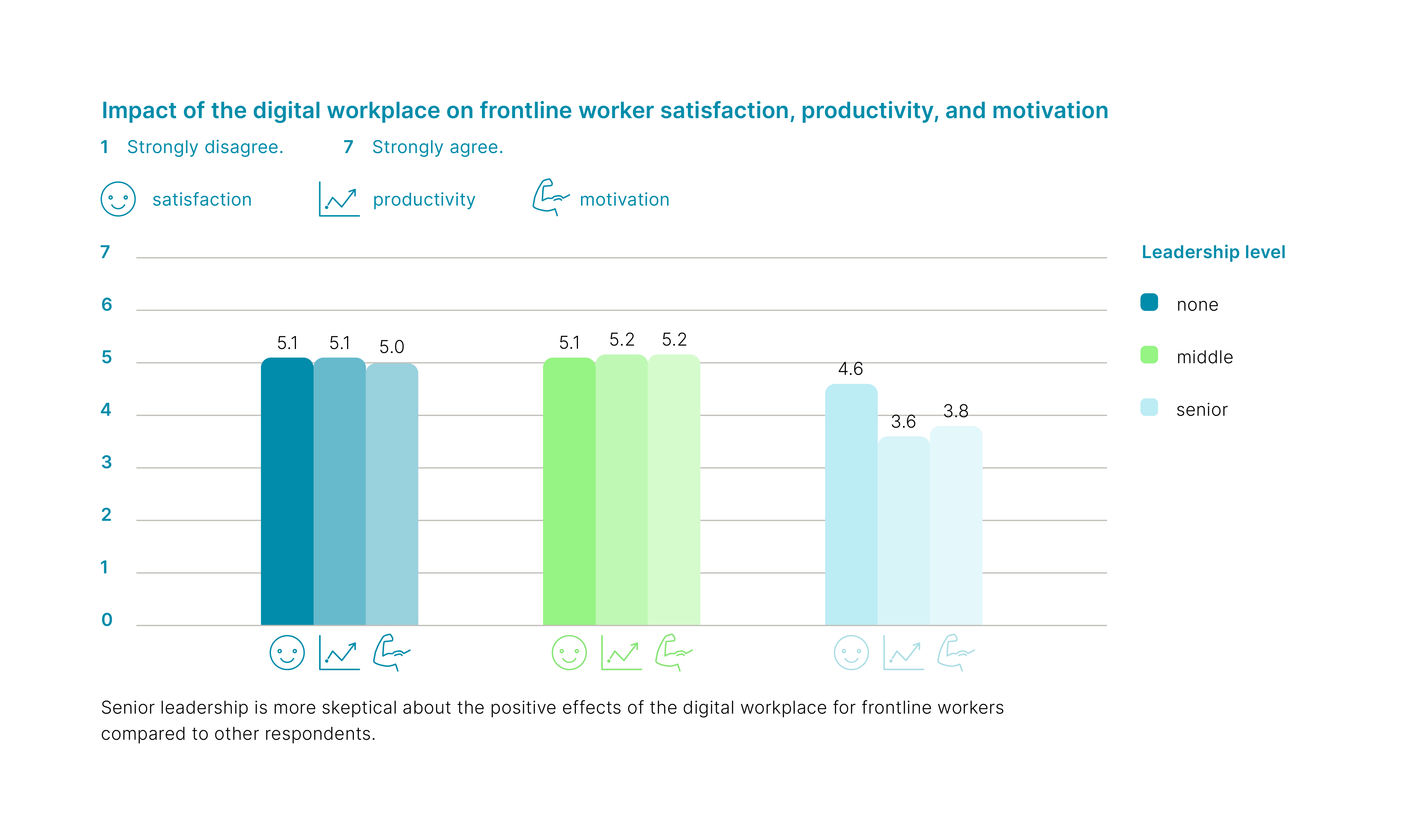
- Integrate frontline workers into digitalization
Frontline workers need to be more integrated into digitalization processes. The digital workplace enhances their satisfaction (5.1 on a scale from 1 to 7), productivity (5.0), motivation (4.9), and company loyalty (4.7). The first step is to provide mobile intranet solutions and employee apps, accompanied by targeted training.

- Employee experience boosts productivity
A well-integrated digital employee experience enhances productivity (5.7 on a scale from 1 to 7) and reduces mental strain (5.2). Companies that adopt data-driven HR strategies benefit from higher employee satisfaction and productivity (both 4.0). However, ensuring high data quality is essential. The findings also indicate that employees without leadership roles benefit significantly from digital solutions, both in terms of productivity and well-being.


